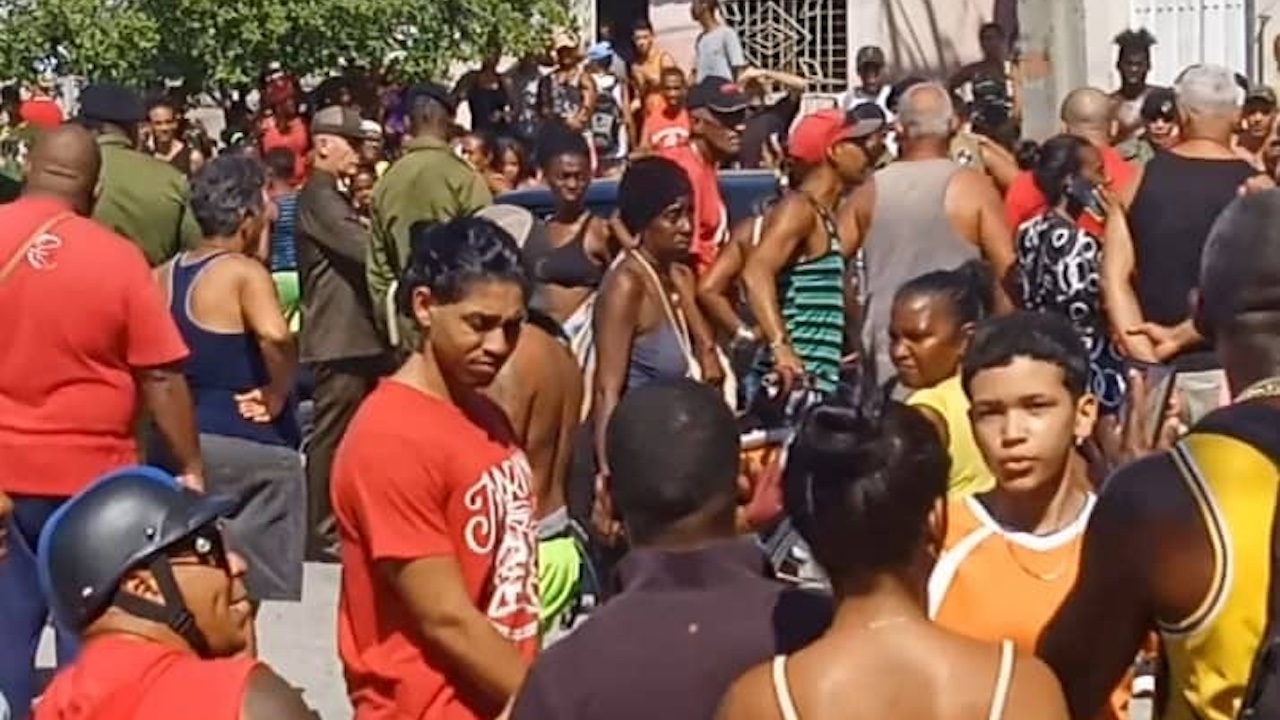It is difficult to find a revolution among those that have changed the destiny of a nation, or humanity as a whole, that has not taken shape based on the agglutinative economic misfortune of human groups only having in common misery and a lack of hope in the system.
From the fiscal discontent of the Thirteen Colonies, to Marie Antoinette and her cake, it has been the economy —bad economies, specifically— that have driven movements only later led by enlightened elites whose thought transcended their hunger a bit... though not much. If you do not believe me, look at the separatist patricians who did not decide that being Cuban and Spanish was incompatible until bankruptcy beset them.
The people of Santiago have been criticized for taking to the streets to demand electricity and food by other misguided Cubans who only seem satisfied if on the island we insist on upholding sublime values like freedom and democracy, but not the food that we desperately need to alleviate our children's hunger.
"As soon as they deign to toss them a little bit of food, and half an hour of electricity, it's all over, and they lower their heads again," Zoé Valdés posted, apparently disgusted by the prosaic masses that protested for electricity and food.
The sublime is generally the luxury of elites who are not worried about eating every day; elites, however, that can do nothing without masses following them. The masses, however, do not follow ideas. At least not at first. Rather, they are spurred by hunger and misery, the concrete absences that are later succeeded by abstract ideas such as the homeland and independence that, supposedly, when put into practice, will remedy these material deficiencies.
Castroism owes its longevity to preventing the people who opposite it from organizing and advancing a coherent set of ideas to topple a government that monopolizes everything from bayonets to the products of the ration card. Totalitarianism, always exercised in the name of supposedly solidary collectivist ideas, is, in essence the most individualistic of political systems, as it devotes all its energy to keeping individuals isolated from each other, connected only by and for the State.
Under totalitarianism, all organizations born as a counterpart to centralized power —trade unions, parties; student, professional, and regional groups; cooperatives of different kinds, associations, parliaments— are tentacles of that one power, inserted into society to sap its vitality and independence. The absolute absence of a civil society is the hallmark of totalitarianism, and also what makes it virtually impossible to overthrow it from within.
Totalitarianism "cools" societies to such an extent that, in order to "warm them up" and incite the people to rise up against their tyrants, higher levels of pressure are necessary. Hence, the "cooled" Cuban people endure, resigned, affronts that in other parts would lead to popular tsunamis that, quickly and so that they would not subside, would be led and taken advantage of by pre-existing autonomous civic structures comprised of workers, students, owners or ethnic groups, none of which exist in Cuba.
In a totally subjugated society, the only way to generate revolutionary heat is to turn up the dial on misery. Only when life is materially unbearable, insufferable, unlivable, do the masses explode. If these extremes are not reached, they simply tolerate a situation that, instead of being black with some gray stitches, is gray with some black stitches, a question of shades of misery, all while a parasitic caste basks in luxury behind a wall of security and intelligence forces. Castroism has squandered every opportunity it has had to keep from completely destroying the country, pushed the people to the brink, a redemptive threshold where pangs of hunger are more convincing than political theory, and the people quickly shift from demanding "electricity and food" to "Homeland and Life".
That the masses come out demanding food is exactly what should be expected in the face of the absolute physical and moral bankruptcy of a system still buttressed by totalitarian inertia, but one weakened by its efforts to transform the most beautiful land that human eyes had ever seen into a putrid dunghill.
The real challenge is to connect those people who rose up on July 11, 2021, enraged, with a leadership capable of channeling that spontaneous tidal wave, which only sometimes bubbles over at demonstrations, comprised of citizens who wait, latent, amidst the eerie and seamy shadows that pervade every Cuban city.
There is probably no way to remedy that dissociation between a group of leaders, a structured opposition, and the people that Castroism has managed to sow, so these protests, although cathartic, mainly serve to erode the heart of the beast, the core of a system composed of different vile interests that collide at the highest levels of a mafia-like regime whose pinnacle is composed of the worst of the system, the most despicable, those willing to commit any betrayal or crime, those unscrupulous climbers who have managed to ascend the Castroist power structure not to save the Revolution, but to save themselves. So when they can choose —when the dinosaurs are extinct— they will choose to save themselves and to finally dismantle a regime that, thanks to demonstrations for "Homeland and Life" (Patria y Vida) and "electricity and food," they know is already dead and rotting.
